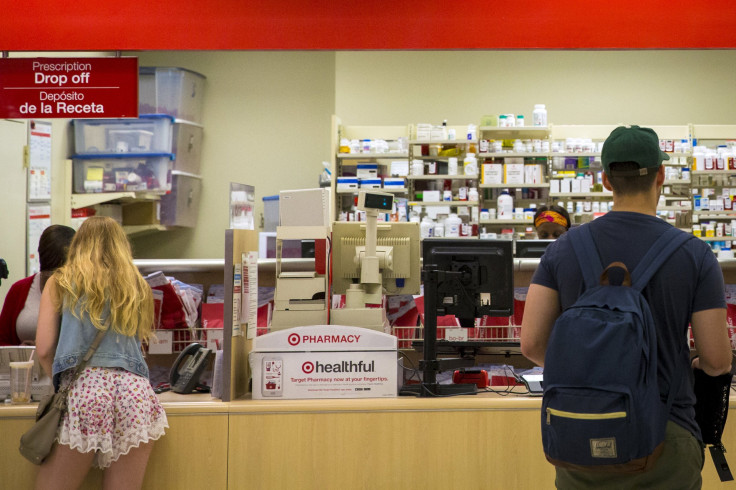Can The Government Control Prescription Drug Prices? Confronting Price Gouging Will Take Time, Reps Say

Several Democratic members of Congress who banded together to create a task force to investigate the price of pharmaceutical drugs will be the first to admit that lowering the cost of medicines — and preventing dramatic price hikes — will take quite some time. A lack of bipartisan support for solutions and legal barriers to price negotiations will make the issue not only important for the coming year but beyond, Democratic representatives suggested in a call with reporters Tuesday.
"I don't think even the most optimistic of us ... expect that we will see action on price negotiation in 2016," said Rep. Lloyd Doggett, D-Tex. The task force was "laying the foundation" for action later "by exploring the dimensions of the problem" now, he added. Doggett and two other Democratic representatives, Peter Welch of Vermont and Xavier Becerra of California, spoke jointly with reporters Tuesday, a day after healthcare data company Truveris released an analysis stating that in 2015, drug prices had risen more than 10 percent.
Nearly 70 percent of Americans take at least one prescription drug, and more than half of them take two such drugs, research by the Mayo Clinic in Rochester, Minnesota has found. In October, the nonpartisan and nonprofit Kaiser Family Foundation released findings that 77 percent of Americans said their top health concern was the rising price of prescription drugs.
The aim of the task force, which House Democrats launched as the Affordable Drug Pricing Task Force in November, was twofold, said Welch. It sought to make lowering the cost of drugs a priority for Congress and it also aimed to produce a legislative package to address what Doggett described as the "pervasive problem" of "price-gouging."
Sudden hikes in drug prices have hit the news with increasing regularity in recent months. Prominent among those cases is the story of Daraprim, a drug to treat a rare infection that can be fatal for immune-comprised people whose price Martin Shkreli, then the CEO of Turing Pharmaceuticals, raised from just under $14 a pill to $750 in less than one day. Pricey hepatitis C drugs, like Gilead's $1,000-per-pill Sovaldi, have also made headlines.
Prescription drug prices soar in U.S. markets — why do drugs cost so much? http://t.co/SK9RLrLSut pic.twitter.com/tMJ99em0dq
— Intl. Business Times (@IBTimes) May 20, 2015
The ability of the government to actually rein in rising drug prices remains questionable, particularly given the stalemate in Congress and what Democrats cast as Republicans' reluctance to tackle the tissues of why drugs cost so much and how their prices are decided. "Our Republican colleagues ... have been unwilling to join us," Doggett said, adding that calls for hearings and meetings to discuss the problem of price gouging had "fallen on deaf ears so far."
Legally, Medicare Part D, the prescription drug component of the government health insurance program for the elderly and permanently disabled, cannot negotiate with pharmaceutical companies over drug prices. The Congressional Budget office has projected that spending by Medicare Part D will reach $88 billion in 2016, up from $77 billion in 2015. In 2014, the pharmaceutical industry sold about $374 billion worth of prescription drugs in the United States.
Representatives said Tuesday that the task force would explore existing legal avenues for reining in drug prices, push for greater transparency in the cost of producing drugs and support legislation like the Risk Evaluation and Mitigation Strategies, or REMS, bill, which pushes back against drug companies that try to delay the marketing of less expensive, generic versions of medications.
Doggett, Welch and dozens of other representatives suggested Monday in a letter to Health Secretary Sylvia Mathews Burwell and National Institutes of Health Director Francis Collins that the NIH exercise its existing authority to issue guidelines that could limit price gouging. That authority derives from a 1980 law, popularly known as the Bayh-Dole Act, allowing federal agencies funding private research to keep certain patent rights to a product when the benefits of that invention are not "available to the public on reasonable terms."
© Copyright IBTimes 2024. All rights reserved.






















